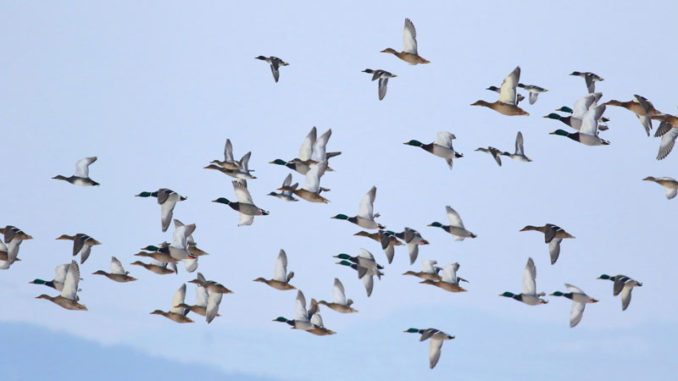
On Friday, May 31, Louisiana’s attorney general, Jeff Landry, officially filed an appeal with the state supreme court to overturn a previous judicial decision that denies public access to one of the state’s most historic and important waterfowl hunting and research sanctuaries: Catahoula Lake.
At issue is a ruling from the Third Circuit Court of Appeals in December 2018, declaring that the area known for centuries as Catahoula Lake was actually a stream and not a lake. Therefore, the adjacent landowners, not the state, are the owners of the majority of the lake’s inundated water bottoms.
Almost every written document about the area refers to it as a lake, as borne out in this description on Wikipedia, today’s modern on-line encyclopedia: “Catahoula Lake is a large freshwater lake located in La Salle Parish and Rapides Parish of central Louisiana, United States. Catahoula Lake is the largest, natural freshwater lake in the state, covering just over 46 square miles (120 km2). It is owned by the State of Louisiana and managed by the U.S. Army Corps of Engineers, the U.S. Fish and Wildlife Service, and the Louisiana Department of Wildlife and Fisheries.”
Largest freshwater lake in Louisiana
The “Statement of the Case” appeal summary, filed by the attorney general’s office, statesvin part, “Catahoula Lake is the largest natural freshwater lake in Louisiana, and it has been treated as a publicly owned lake since before statehood in 1812.
“Eleven United States General Land Office surveyors and countless 19th century officials and eyewitnesses documented a vast lake spanning what is now the border between Rapides and LaSalle parishes in Louisiana.
“The legal effect of this historic recognition is that the State of Louisiana owns Catahoula Lake up to its ordinary high-water mark, its citizens have access rights to the lake for recreation, and its agencies have access to the lake for wildlife habitat management. In 1972, when the United States completed water-control structures on and around Catahoula Lake, its classification as a lake did not change.
“The only thing that changed was the exact timing of the fluctuations in the water levels. For the first time in more than 200 years, in 2016, Judge Boddie, sitting ad hoc in the Ninth Judicial District Court, used an incomplete legal analysis to remove from the public domain 42 square miles of land, gifting to the plaintiffs thousands of acres of property for which they hold no title, on which they have never paid property taxes, and to which they made no claim of ownership until 2006.
“This conversion of a public lake to private property in the face of over-whelming evidence to the contrary is an absurd result that cannot stand. This case arises from the United States’ construction of a congressionally-authorized navigation and wildlife conservation project nearly a half a century ago that comprises several water control structures.”
Defending the rights of sportsmen
Landry issued the following statement:
“In the Crooks case, our office is defending long-standing Louisiana law and the rights of sportsmen to access our bountiful waters.
“If the Louisiana Supreme Court does not overturn the lower court’s clearly erroneous decisions, the public risks losing access to prime hunting and fishing locations throughout Louisiana, primarily in the central and northern region.”
The head of Louisiana’s Department of Wildlife and Fisheries, Jack Montoucet, supports overturning the previous ruling.
“The Louisiana Department of Wildlife and Fisheries stands in strong support of the state’s effort to reverse a court decision that could devastate the opportunity of Louisiana citizens to fish, hunt or recreate in much of the Catahoula Lake area,” Montoucet said.
“This ruling is contrary to over 200 years of public access on Catahoula Lake. And, if it stands, it will forever change what has traditionally been a treasured resource.
“To remove Catahoula Lake from public access could negatively affect waterfowl in the state, because it would limit LDWF’s ability to manage water levels that are key to habitat management.”
A schedule for the appeal to be reviewed has not been set.
Observers say this case is much broader than just Catahoula Lake and could affect dozens of areas where historic public access could be blocked by court decisions.